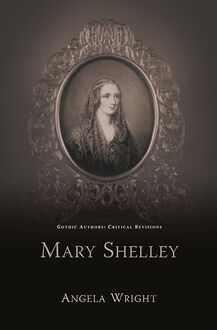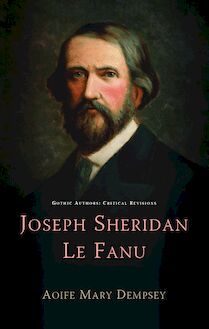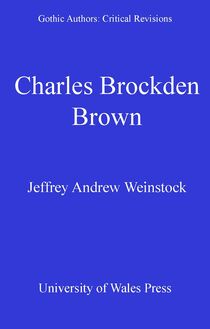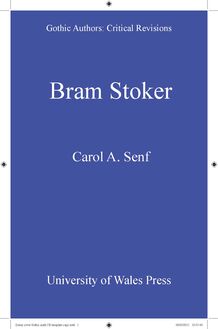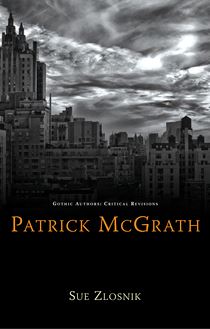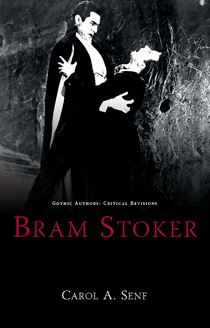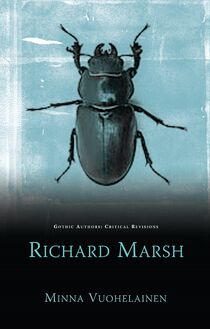Charles Brockden Brown , livre ebook
216
pages
English
Ebooks
2011
Obtenez un accès à la bibliothèque pour le consulter en ligne En savoir plus
Découvre YouScribe et accède à tout notre catalogue !
Découvre YouScribe et accède à tout notre catalogue !
216
pages
English
Ebooks
2011
Obtenez un accès à la bibliothèque pour le consulter en ligne En savoir plus
Publié par
Date de parution
15 juillet 2011
Nombre de lectures
3
EAN13
9780708324226
Langue
English
Poids de l'ouvrage
1 Mo
Publié par
Date de parution
15 juillet 2011
EAN13
9780708324226
Langue
English
Poids de l'ouvrage
1 Mo
Gothic Authors: Critical Revisions
Charles Brockden
Brown
Jeffrey Andrew Weinstock
University of Wales PressCHARLES BROCKDEN BROWN
00 Prelims_BrockdenBrown 7_6_2011.indd 1 6/7/2011 3:38:31 PMSERIES PREFACE
Gothic Authors: Critical Revisions is dedicated to publishing in
nova tive introductory guides to writers of the Gothic. The series
explores how new critical approaches and perspectives can help us
to recontextualize an author’s work in a way that is both accessible
and informative. The series publishes work that is of interest to
students of all levels and teachers of the literary Gothic and cultural
history.
SERIES EDITORS
Andrew Smith, University of Glamorgan
Benjamin Fisher, University of Mississippi
EDITORIAL BOARD
Kent Ljungquist, Worcester Polytechnic Institute, Massachusetts
Richard Fusco, St Joseph’s University, Philadelphia
David Punter, University of Bristol
Angela Wright, University of Sheffeld
Jerrold E. Hogle, University of Arizona
00 Prelims_BrockdenBrown 7_6_2011.indd 2 6/7/2011 3:38:31 PMGOTHIC AUTHORS: CRITICAL REVISIONS
Charles Brockden Brown
Jeffrey Andrew Weinstock
UNIVERSITY OF WALES PRESS
CARDIFF
2011
00 Prelims_BrockdenBrown 7_6_2011.indd 3 6/7/2011 3:38:31 PM© Jeffrey Andrew Weinstock, 2011
All rights reserved. No part of this book may be reproduced in any material
form (including photocopying or storing it in any medium by electronic
means and whether or not transiently or incidentally to some other use of
this publication) without the written permission of the copyright owner.
Applications for the copyright owner’s written permission to reproduce
any part of this publication should be addressed to the University of Wales
Press, 10 Columbus Walk, Brigantine Place, Cardiff CF10 4UP.
www.uwp.co.uk
British Library CIP Data
A catalogue record for this book is available from the British Library
ISBN 9780708324202 (hardback)
9780708324196 (paperback)
eISBN 9780708324226
The right of Jeffrey Andrew Weinstock to be identifed as author of this
work has been asserted in accordance with sections 77 and 79 of the Copy
right, Designs and Patents Act 1988.
Typeset in Wales by Eira Fenn Gaunt, Cardiff
Printed by CPI Antony Rowe, Chippenham, Wiltshire
00 Prelims_BrockdenBrown 7_6_2011.indd 4 6/7/2011 3:38:31 PMAcknowledgements
A number of people contributed valuable advice, time and assistance
toward the completion of this book. I would like to thank Andrew
Smith and Benjamin Franklin Fisher IV for inviting me to serve as
author for this volume, and the team at the University of Wales Press
for overseeing the manuscript’s production. Stephen Shapiro, Mark
Kamrath and Philip Barnard, from whose work on Brown I have
benefted greatly, were each kind enough to answer questions about
Brown’s potential infuence. Janie Hinds, whose work on Brown I
have also enjoyed, was kind enough to send a copy of her book
when my university library could not obtain one.
Central Michigan University facilitated the completion of this
project with a course reduction and my colleagues in the English
department, especially Ari Berk and Kris McDermott, have always
been supportive.
Most crucially, my wonderful wife Astrid, my son William and
my parents Alan and Madeline supported me every step of the way
and make everything possible.
00 Prelims_BrockdenBrown 7_6_2011.indd 5 6/7/2011 3:38:31 PM00 Prelims_BrockdenBrown 7_6_2011.indd 6 6/7/2011 3:38:31 PMcontents
Acknowledgements v
A Polemical Introduction 1
1 Charles Brockden Brown and the Frontier Gothic 26
2 Charles Brockden Brown and the Urban Gothic 53
3 Charles Brockden Brown and the Psychological Gothic 90
4 Charles Brockden Brown and the Female Gothic 119
Conclusion: The Legacy of Charles Brockden Brown’s
Four Gothics 147
Notes 157
Bibliography181
Index199
00 Prelims_BrockdenBrown 7_6_2011.indd 7 6/7/2011 3:38:31 PM00 Prelims_BrockdenBrown 7_6_2011.indd 8 6/7/2011 3:38:31 PM
A Polemical Introduction
This book is a contribution to the University of Wales Press’s Gothic
Authors: Critical Revisions series, which has among its objectives
to offer new perspectives on and to reinvigorate discussion of canon
ical and neglected Gothic authors. Late eighteenth to early nineteenth
century American Gothicist Charles Brockden Brown has the odd
and seemingly paradoxical distinction of arguably being both canon
ical – an established fgure within the American literary tradition
– and, simultaneously, neglected. This contradictory duality in large
measure has to do with the critics’ suspicion that although Brown
was frst in many things, he was not among the best. As Bernard
Rosenthal pointed out in the introduction to his collection of critical
essays on Brown in 1981, Brown, like a musician who invented an
important new instrument that he himself could not play especially
well, has again and again been honoured by critics more for what
1he initiated than for what he achieved. Widely regarded, according
to Paul Lewis, as the ‘frst serious, complex, and/or interesting Ameri
2can novelist’, Brown is repeatedly addressed as a point of origin
rather than a destination. Not only is he considered the United States’s
frst pro fessional writer – the frst American author who attempted
to earn a living through his pen – but, according to Michael Davitt
Bell, the ‘real history’ of ‘serious’ American literature begins with
Brown, the ‘American Byron’, whose six novels set the stage for the
3blossom ing of American Romanticism later in the century. Brown
01 MainText BrockdenBrown 7_6_2011.indd 1 6/7/2011 3:37:36 PM
Charles Brockden Brown
is thus fgured as a sort of Aristotelian ‘prime mover’ of Ameri can
4fction, the ‘Father of the American Romance’.
First among frsts
But Brown apparently went beyond pioneering the American ro
mance. A brief survey of the critical literature on Brown yields
an impressive range of claims made concerning his foundational
status. For the purposes of this study focusing on Brown as writer
of Gothic tales, it is signifcant to note that the ‘Father of American
5letters’ also set the American Gothic into motion – an achievement
trumpeted by the title of H. R. Warfel’s seminal 1949 study, Charles
Brockden Brown: Pioneer American Gothicist. In Leslie Fiedler’s esti
mation, Brown single handedly solved the key problems of adapting
the European con ventions of the Gothic to American shores and,
through his infuence on Poe and Hawthorne, ‘determined . . .
6the future of the Gothic novel in America’. Peter Kafer forcefully
reiterates this when, in the introduction to his biography of Brown,
Charles Brockden Brown’s Revolution and the Birth of the American
Gothic (2004), he states baldly that with the publication of Brown’s
frst novel Wieland in 1798, ‘at the age of twentyseven Charles
Brockden Brown invented the Ameri can Gothic novel’. Kafer goes
on to make the sensational claim that Brown ‘was the only man
or woman in 1790s America with the requisite Gothic imagination
to sense the dark histories already weighing down on the American
7republic’.
Brown’s trailblazing, however, extends in the estimation of the
critics far beyond his dark Gothic vision and his adaptation of the
European Gothic novel to American shores. For William Hedges,
what is notable about Brown is his intuition that ‘derivative and dis
credited fctional forms’ including the romance and the melodrama
8were particularly well suited to conveying ‘deep American impulses’,
while for Charles Carpenter, Brown’s magazine the Literary Magazine
and American Register which he ran from 1803 until 1806 and then
again in a different form from 1807 to 1809 establishes his credentials
as a pioneer American historian; and further, according to Carpenter,
Brown’s early nineteenth century political pamphlets entitle him
2
01 MainText BrockdenBrown 7_6_2011.indd 2 6/7/2011 3:37:36 PMA Polemical Introduction
to a place as one of the early American republic’s ‘most articulate
9political theorists’.
Romanticist, Gothicist, sentimentalist, historian, political theorist
– Brown was there at the start. Again and again, Brown is heralded
as having been frst (or at least among the frst), if not best. His frst
novel, Wieland (1798), arguably inaugurated the Gothic novel in
America and its narrator, Clara Wieland, presents us with the frst
10case of an unreliable narrator in American literature. His second
novel, Ormond (1799), offers what Kristin Comment characterizes
as the ‘frst extended fctional portrayal . . . [of] “romantic passion”
11between women’ – that is, it was the frst American novel to repre
sent what we today call lesbianism – and Bill Christophersen pro
poses that the work is perhaps the frst ‘symbolist work’ in Ameri can
12fction. Arthur Mervyn, his third novel (or, since it was published
in two parts [Part I 1799, Part II 1800] with another novel, Edgar
Huntly [1799], intervening, possibly his fourth depending upon how
one counts) has the distinction of offering according to Hedges
the ‘frst signifcant representation of the American in his “solitary
condition”, the hero beset by the contradictions of the newworld
13culture’. And Edgar Huntly, Brown’s fourth (or, again, third depend
ing on how one counts) novel must be ranked as a frst on several
counts: the frst American novel to mine the raw material of the
American frontier for fctive purposes, in the process making it the
14frst to create a ‘specifcally American psyche’; the frst American
novel to adapt the European tradition of the picturesque travel narra
15tive; the frst important American use of the Gothic device of the
16double or doppelgänger; and a story that pioneers both the detective
17story genre and the style of narration now referred to as free indirect
18discourse (a ‘revolutionary’ achievement in Hagenbüchle’s estimation).
Summarizing this impressive array of ach
